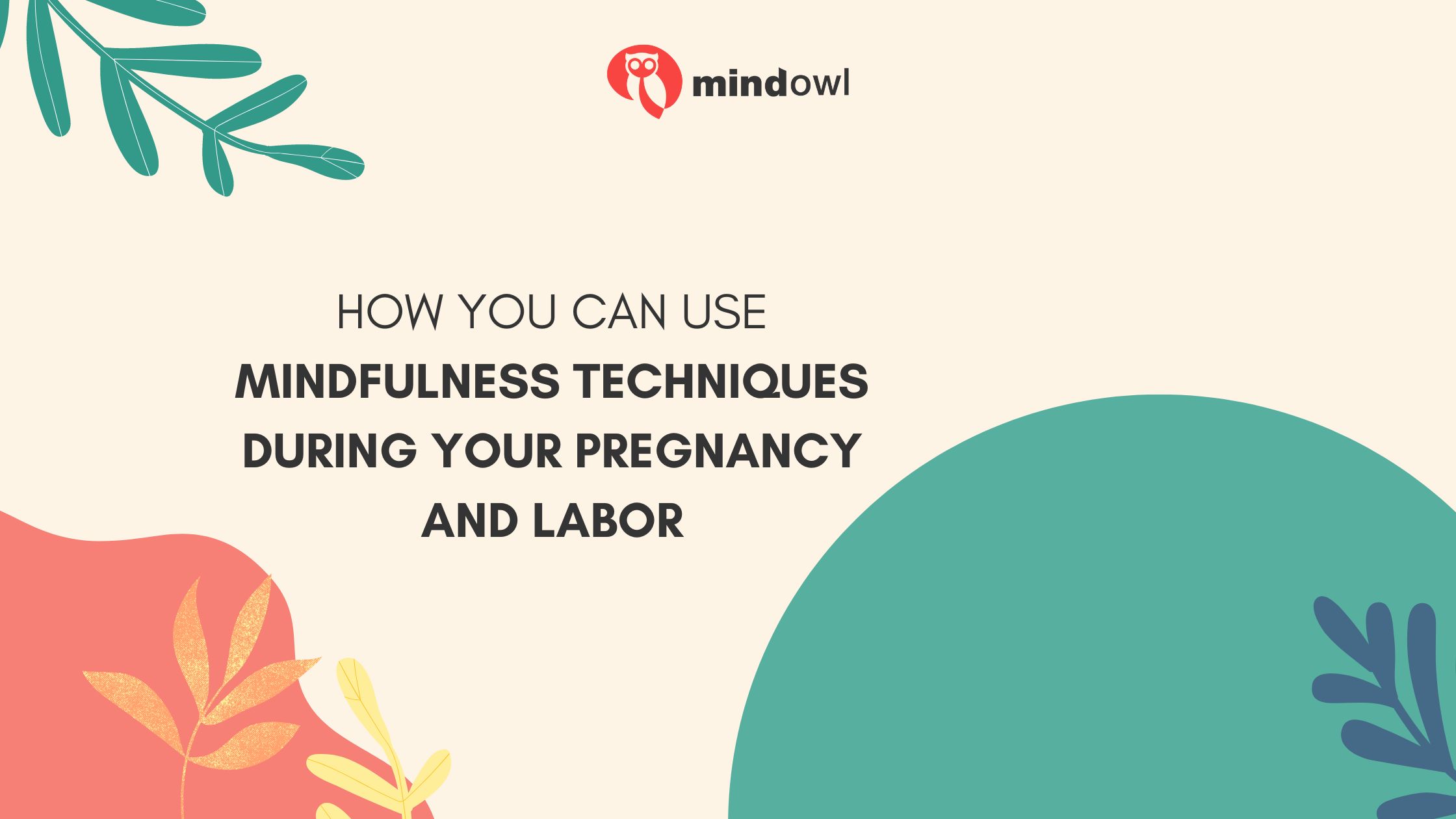Pregnancy can be a beautiful, transformative experience, but it’s not without its challenges. Many women experience near-constant aches and pains, constipation, mood swings, and morning sickness (which, let’s face it, could be called all-day sickness!) during the entirety of their pregnancies.
It can be particularly challenging if you have pregnancy-relaxed anxiety and fears, such as the delivery process, the health of your baby, and the ability to care for your child after birth. And then, there is the everyday stress of juggling work and family life while dealing with your ever-changing body. No wonder so many expectant mothers feel overwhelmed!
The good news is, studies show that practicing mindfulness techniques during pregnancy may help women manage perinatal anxiety, depression, and perceived stress and even lower the risk of postpartum depression.
The Benefits of Mindfulness
Pregnancy and the process of becoming a mother is a time of immense physical, hormonal, and emotional changes. There’s even a term for it: matrescence. Like adolescence, it is a transformative time – a healthy but highly demanding change in a woman’s life that alters her forever.
Thankfully, certain mindfulness practices can provide a sense of calm and balance amidst the whirlwind of emotions. By being present in your body and focusing on your breath, you can greatly reduce your feelings of anxiety and stress.
- Managing Discomfort and Pain: Mindfulness techniques, such as deep breathing, body scan meditations, and guided imagery, can help you manage discomfort and pain during pregnancy. Mindful breathing allows you to connect with your body and ease tension, whole body scan meditations can help you identify areas of discomfort and release the tension stored in those parts.
- Coping with Anxiety and Fears: Pregnancy is often followed by various anxieties and fears, especially for first-time mothers. Mindfulness encourages acceptance and non-judgmental awareness of these emotions, which can help you cope with uncertainties and fears associated with childbirth.
- Stress Reduction: Pregnancy can be hard not only on your body but your mind and emotions as well. Luckily, mindfulness techniques, such as deep breathing and meditation, can help you manage stress by promoting relaxation and calming your nervous system. Meditation can even improve your sleep.
How to Practice Mindfulness
The basic premise of mindfulness is to tune into your senses and stop overthinking so you can become more grounded and relaxed. Here are some simple steps to incorporate mindfulness into your daily routine throughout your pregnancy.
- Focus on Your Breath: Find a quiet and comfortable space where you can sit or lie down without distractions. Then, take a few deep, slow breaths. While you’re breathing deeply, pay attention to the sensation of your breath as it moves in and out of your body.
- Body Scan Meditation: Tune into your body’s sensations and reconnect with your physical self by performing a full body scan meditation. Start from the crown of your head and slowly move your awareness down to your feet. Notice any areas of tension or discomfort and gently release them with your breath.
- Guided Imagery: Use guided imagery recordings or apps to visualize positive birth scenarios and practice relaxation techniques. Imagine yourself embracing each stage of labor with confidence and ease.
- Mindful Walking: Take mindful walks often, preferably in nature, by focusing on each step and the sensations in your feet and legs. Being in nature can have a soothing effect and help you feel more grounded during pregnancy.
- Prenatal Yoga: Practicing prenatal yoga has many benefits, including reduced stress and anxiety, increased strength and flexibility, and decreased lower back pain and headaches. If you have plenty of yoga experience and like the comfort and privacy of your home, feel free to practice on your own. If, on the other hand, you’re new to yoga and you want a sense of connection with other expectant mothers, it may be best to join a prenatal yoga class.
Managing Childbirth Worries and Anxieties
Childbirth can be scary, especially for first-time mothers. The uncertainties, pain, and the unknown can all contribute to feelings of anxiety and fear. Thankfully, this is where mindfulness techniques can be particularly helpful.
Firstly, figuring out your due date can help you manage your worries and anxieties. Though every birth experience and timing is unique, it can help get better prepared for when it happens.
As the end of pregnancy approaches, mindfulness can serve as a powerful tool to help you feel more confident and empowered. By visualizing a positive birth experience and using affirmations, you can create a mindset that reinforces your ability to cope with delivery challenges.
If you get into labor it is good to know that your breath can act an anchor amidst the intensity of contractions. By staying focused on your breathing, it helps you remain centered and reduce anxiety. Slow, deep breaths can help you stay relaxed, which is helpful for the progression of labor.
Being mindful of your body’s signals during labor is also important. Paying attention to your feelings and embracing positions that bring comfort can enhance your labor experience. While it’s important to listen to your healthcare provider, trusting your instincts is equally as important.
The same mindfulness techniques can be helpful for surgical births as well. While you won’t feel pain during your surgery, you’ll likely feel unpleasant pressure and tugging, as well as experience strong emotions as you are giving birth to your baby. To reduce anxiety and stay calm during your surgery, focus on taking deep, long breaths in and out, and practice positive visualizations and affirmations.
MindOwl Founder – My own struggles in life have led me to this path of understanding the human condition. I graduated with a bachelor’s degree in philosophy before completing a master’s degree in psychology at Regent’s University London. I then completed a postgraduate diploma in philosophical counselling before being trained in ACT (Acceptance and commitment therapy).
I’ve spent the last eight years studying the encounter of meditative practices with modern psychology.


